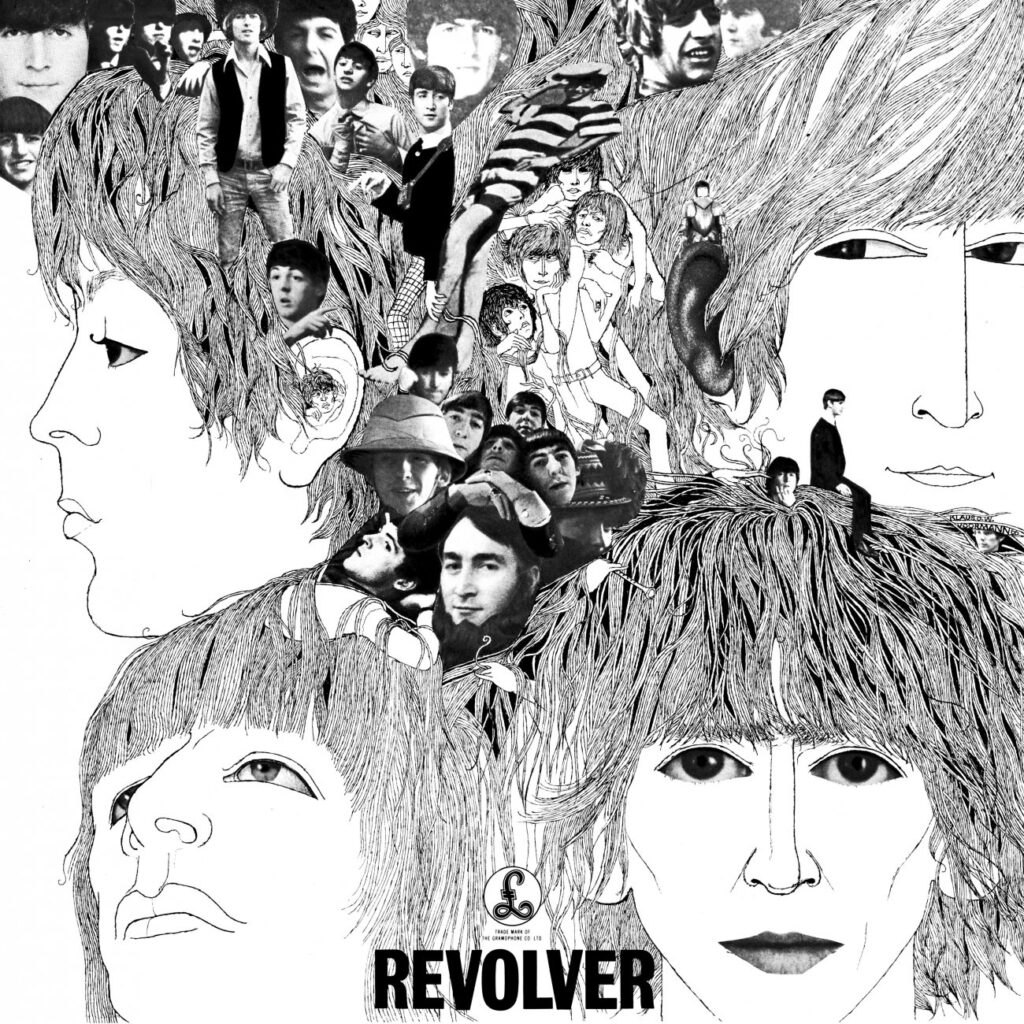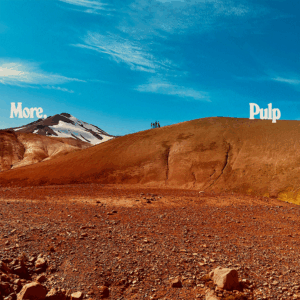PART ONE: REVISTING SOME OF THE MOST ICONIC ALBUMS EVER MADE WITH RACHEL BROWN

Throughout the history of music, there have been a select few albums that have left an indelible mark on the world of music, becoming staples in thousands of music lovers’ record collections. These albums not only possess distinctive sounds and styles but also have several ground-breaking songs that have played a pivotal role in shaping the course of mainstream music. Today, I will share my personal recollections of discovering and being influenced by some of these iconic records.
REVOLVER – THE BEATLES

Revolver, the sixth studio album by the Beatles, is widely considered to be one of the most influential albums in music history. Released in August 1966, Revolver marked a significant turning point in the Beatles’ career, displaying a progression in their sound and artistic maturity. From Eleanor Rigby’s chamber pop to Tomorrow Never Know’s kaleidoscopic eruptions, this was the band’s first recording after announcing their retirement from live performance. Historically, the Fab Four’s rapid metamorphosis in 66′ has been attributed to the discovery of drugs, Eastern mysticism, and fraternization with freakier peers Dylan, The Stones, The Byrds, and Brian Wilson. It was a journey that would shape the course of their career and produce some of their most innovative and critically acclaimed music.
One of the primary pleasures of listening to Revolver is the opportunity to experience the camaraderie and collaboration that still existed between the Beatles during this era. As the Beatles experimented with the parameters of pop music on Revolver, they planted seeds, played mind games, and generally explored places that, with some exceptions, no one else had ever been close to exploring before – maybe only Brian Wilson.
The influence of Indian sitar player and philosopher Ravi Shankar became palpable on their music, most prominently on Revolver. The band integrated Indian influences into their music, adopting a sitar-like drone on several tracks and creating mystical soundscapes. Shankar’s impact on the Beatles was more profound than just musical. He also introduced them to meditation and the concept of a spiritual life beyond the material world. The Beatles were intrigued and inspired by these new ideas, which can be seen in their songs, lyrics, and artistic choices during this period.
In just 33 months, the Liverpool lads made the transition from “yeah, yeah, yeah” to “tomorrow never knows”— a mesmeric, acid-soaked masterpiece. Revolver is still a razor-sharp work piece of work over forty years later.
NIRVANA – NEVERMIND

Nirvana’s landmark album Nevermind transcended music to become a global cultural phenomenon.
During my early teenage years, Nirvana’s music had a profound influence on me. I remember vividly being introduced to the band in 1991, when I was just 11 years old. At the time, all my friends were obsessed with Take That and wore Fruit of the Loom jumpers and Naff Naff coats. However, I had a different taste in music and quickly developed a fascination with Nirvana. What set them apart for me was not only their grunge sound but also their unique image. I found myself drawn to their edgy and rebellious image, which was a far cry from the mainstream trends of the time. I eagerly embraced their alternative aesthetic, sporting an undercut, ripped jeans, and a “signature” Nirvana t-shirt. I also used to colour my blonde hair in felt tip pen whilst sat in lessons!. It was during this period that I had my first crush. His name was Keith, and he was in my school from the same year. His brother was in a band called Flumbuff, and I thought they were the epitome of coolness. I would often visit Keith’s house, where I would witness the band rehearsing in the garage during dinner time. Their practice sessions were a source of inspiration for me, and I couldn’t help but be in awe of their talent that was inspired by the grunge movement.
In their second album, Nirvana brought us the right music at the right time. An era of glam rock was ending, and a new era of music was beginning. As far as early 1990s bands go, this one fit in nicely. In Nevermind, punk/hard rock music was laced with pop elements, making it accessible to an expansive audience and allowing heavy radio play. In comparison to June 1989’s Bleach, this project was much better developed, expressing an acute sense of angst that Generation Xers could relate to. There are quite a few sing-along heavy punk rock songs on this album, and it has melodies that stay in your head for days on end. I can’t think of another band that blended those things so perfectly at that time.
Over 24 million copies of Nevermind were sold worldwide, highlighting Seattle, home to Pearl Jam, Soundgarden, and Alice in Chains, as well as alternative rock as a whole. It helped propel bands like Smashing Pumpkins and Green Day from the underground to global superstardom. Nirvana’s second album redefined alternative rock for ’90s America. Kurt Cobain said: “There were all these bands we thought were cool and we hoped they would think what we did was cool as well.” First single and opening track, Smells Like Teen Spirit, lifted its riff equally from Boston and The Pixies, bridging the divide between “what people said was hip to listen to – and the stuff that all of us really listened to, like Kiss, Black Sabbath and Cheap Trick.”
Of the accolades accorded to Nevermind upon its release, “startlingly original” was often top of the heap, and the only real question was how Nirvana had come up with such a remarkable album on the heels of their unremarkable first. While their first album went relatively unnoticed, Nirvana’s second album, “Nevermind,” took the world by storm and became a cultural phenomenon. The stark contrast between the two albums’ reception showcased the band’s incredible growth and ability to redefine the alternative rock genre in the ’90s.
“More time, more money, more songs,” Cobain answered when interviewed. “Bleach cost $606.17 to make. Nevermind weighed in at half a million.”
Ironically though, as influential this album was on me, its now my least favourite as it feels too commercialised, however, I will always give it iconic status for steering me well onto the path of grunge and of course guitar music.
NEVER MIND THE BOLLOCKS – HERE’S THE SEX PISTOLS

The Sex Pistols’ only album during their lifetime, Never Mind the Bollocks, Here’s the Sex Pistols, is often regarded as a compilation of the group’s best songs released into an atmosphere of pure hysteria. The album consists of four singles, which are included in the collection. However, its release was delayed due to Johnny Rotten’s manager Malcolm McLaren’s strategic use of cross-media negotiations. Virgin Records eventually released the album in a rush, countering the imminent French imports by Barclay.
Despite its critical acclaim, the album faced criticism for its polished production. John Lydon, the lead singer of the band, expressed his dissatisfaction in 1988, stating that the music was too produced and lacked raw energy. He compared it to a West Coast band, where everything fit perfectly into place, resulting in a too polished sound. The drum/guitar axis of Glen Matlock and Paul Cook, on the other hand, was vital to the Pistols’ sound. They often laid down the drums and guitars before finalising the vocals, creating a powerful and dynamic rhythm section.
In terms of influences, the Sex Pistols drew from various genres, including pop. Two notable examples were The Small Faces’ “Wham Bam Thank You Ma’am” and Abba’s “SOS,” which were both blatantly ripped off for the song “Pretty Vacant.” This approach of incorporating pop elements into the band’s music was not uncommon, as the Pistols aimed to disrupt and challenge existing musical conventions.
Overall, Never Mind the Bollocks, Here’s the Sex Pistols stands as a pivotal moment in the history of punk rock. Its release, accompanied by an atmosphere of hysteria, showcased the group’s best songs and laid the foundation for their enduring legacy. The album’s production, while criticised, reflected the Pistols’ eclectic influences and their unique blend of raw energy and pop sensibilities. With its confrontational lyrics, raw energy, and enduring impact, this album remains a classic in the punk rock canon.




